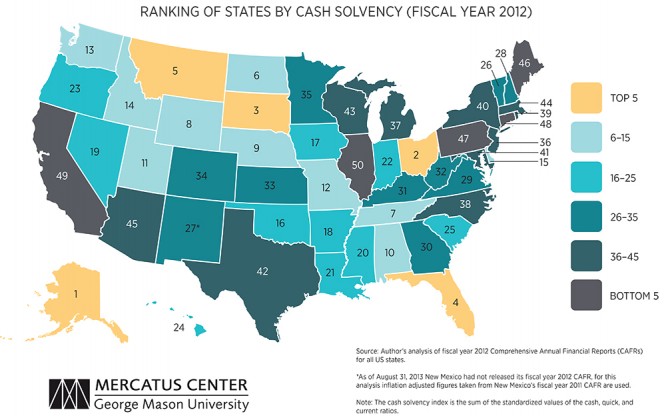By Nick Tomboulides
In January, the Mercatus Center at George Mason University released its 2014 state fiscal health rankings. This seemed like an excellent opportunity to test the old cliches put forth by opponents of term limits — about inexperienced public officials supposedly running term-limited states into the ground.
The study shows that the exact opposite is true. Four of the five most cash-solvent states in the nation (Florida, Ohio, Montana and South Dakota) have eight-year term limits, which is especially impressive when one considers that only 11 states overall have eight-year limits.
This data seems to confirm what we’ve known intuitively — that people without lifelong careers in politics are no strangers to budgeting and paying the bills on time. After all, doing that in one’s own household is often more challenging than doing it with a surfeit of other people’s money.
Finishing dead last on the list is the state of Illinois, where term limits don’t exist and one man, Michael Madigan, has been Speaker of the House for the past 31 years. Thankfully, the effort to term limit the Illinois General Assembly will likely succeed this year.
Political experience isn’t the only type that matters. Often, career legislators lose sight of the fiscal responsibility which comes natural to those outside of the political playpen. With our nation facing $17 trillion in debt and continual threats of its own solvency crisis, term limits on Congress are not just a desirable reform but a critical one.
